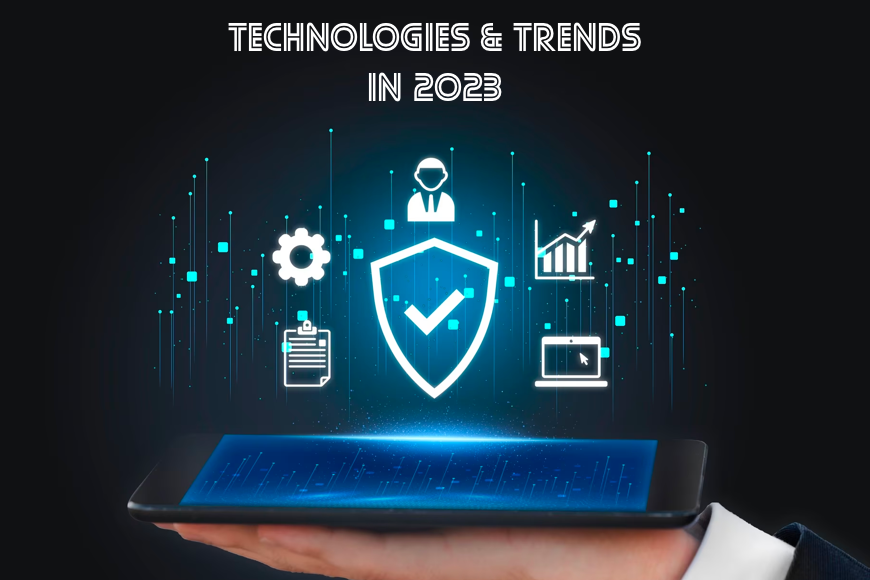The future of VPNs is an intriguing subject that has recently received more interest. VPNs have become a necessary tool for many people due to the growth of remote work and the escalating demand for internet privacy. We can anticipate new trends and technologies in 2024 that will enhance the functionality and usability of VPNs; one such trend being faster speeds and better security features. Furthermore, we can expect an increase in the number of VPN providers offering specialized services for particular sectors or use cases. In this article, we will discuss Best VPNs USA trends that we can expect to see in and beyond 2024.
1. Zero Trust Network Access (ZTNA)
As an alternative to conventional VPNs, zero-trust network access (ZTNA) is a novel security model that is gaining popularity. According to the "never trust, always verify" guiding philosophy of ZTNA, users are not trusted by default and must be independently validated before being given access to resources. This method offers granular access control and decreases the attack surface, making it more secure than typical VPNs.
A Gartner report indicates that ZTNA expanded by 36% in 2022, and it may grow by 31% in 2024. It is likely to be the network security area with the quickest growth. Gartner forecasts that as businesses attempt to offer zero-trust protection for remote workers and organizations reduce their reliance on VPNs for secure access, the demand for ZTNA will rise.
Because ZTNA does not require users to connect to a central server, it is more user-friendly than conventional VPNs. Instead, ZTNA connects users directly to the resources they require through micro-tunnels. This leads to better performance and lower latency.
2. Cloud VPN
In 2024, cloud VPN might just dominate the industry. It is a reliable way to secure a connection to a private network over the Internet. According to a survey by MarkWide Research, the size of the worldwide cloud VPN market is anticipated to grow at an annual rate of 11.8 percent from 2024 to 2030.
Cloud VPNs are easier to integrate with cloud services like AWS, Azure, and Google Cloud Platform. Additionally, they provide greater security features like data encryption, multi-factor authentication, and intrusion detection and prevention systems.
Because cloud VPNs use several servers over various geographical locations, they tend to perform better than traditional VPNs. This typically allows users to quickly and easily access their data from anywhere in the world.
3. AI-based VPN
VPNs are no exception to the growing usage of AI-based technologies to improve security and performance in various industries. In 2024, AI-based VPNs are anticipated to overtake traditional VPNs as the industry's future because they employ machine learning algorithms to assess network traffic and spot potential risks.
AI-based VPNs are better able to detect and prevent harmful traffic in real-time than traditional VPNs, which rely on pre-configured rules and policies to restrict suspicious data. Another advantage is that these VPNs can increase network performance by routing traffic through the most effective way. They are also beneficial when it comes to lowering latency and increasing speed. This is done by utilizing machine learning to analyze traffic trends and behavior.
AI-based VPNs' ability to save costs by automating the configuration and management of security activities is one of its primary advantages. They also offer a zero trust security strategy, which is quickly emerging as the new benchmark for network security, with automatic allowlisting and microsegmentation.
As security functions are created and maintained via automated techniques, VPNs will continue to develop in the future. This progress is anticipated to be significantly influenced by AI-based VPNs, which will improve security and performance while lowering costs and streamlining management. Such VPNs are poised to become a crucial tool for secure and effective network access, as organizations depend increasingly on VPNs to protect their data and operations.
4. 5G VPN
VPNs function best on 5G networks because they provide much higher bandwidth and reduced latency than earlier generations of cellular networks. Users can benefit from quick and dependable connections with 5G VPN, even when working remotely or accessing resources from various locations. Additionally, when processing power is integrated into end systems, developments in edge computing will make VPNs even more effective and efficient.
The increasing processing power presently incorporated into end systems will play a significant role in VPN architecture in the future. As a result, more software-based VPN technology can be installed on endpoints, simplifying the technology for both users and administrators. VPNs will utilize these local processing resources as 5G networks spread, resulting in quicker, more dependable connections.
5. Quantum-resistant VPN
As quantum computers become more powerful, they will be able to easily decode current encryption methods used by VPNs. Quantum-resistant VPNs are designed to protect against this threat by using encryption methods that are resistant to quantum computing.
According to Microsoft Research, post-quantum cryptography can be rapidly deployed to protect existing applications until the applications themselves can be updated to use the new algorithms natively. Verizon is also conducting research. The telecom company is currently testing how quantum-resistant VPNs can be used to secure data from external threats. It is likely that hackers can capture data today and store it till the time quantum computers are powerful enough to break current VPN encryption methods.
Compared to state-of-the-art VPNs, a quantum-resistant VPN needs to be as usable and efficient as possible while providing a high level of security. Future upgrades on the topic will give a comprehensive analysis of the joint system, where layer 2 and layer 3 post-quantum protocol extensions are employed together.
Conclusion
VPNs are an essential tool for protecting private information and sensitive data. They will continue to be important thanks to the growth of remote work and online businesses. The enhanced processing power presently incorporated into end systems will play a far larger role in VPN architecture in the future. This makes it possible to equip endpoints with additional software-based VPN technology. Read our Express VPN review to learn how Express VPN is the best in privacy & security services.
These local processing resources will be used by VPNs, simplifying the technology for both users and administrators. We may anticipate that developments like edge computing and 5G networks will make VPNs more effective and efficient than before. Quantum-resistant VPNs are made to fend off the risk of quantum computers compromising current encryption protocols. The future of VPNs is bright with new technologies and trends emerging to meet the needs of businesses and individuals alike.

